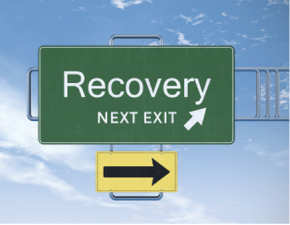By: Christopher Lynch
.jpg)

There has been strong economic data in recent months that has shown positive momentum in the economy. In the Wall Street Journal February 2011 poll of leading US economists, nearly all of the 51 economists polled had expected the GDP to be 3.5 percent higher in the fourth quarter of 2011 than a year earlier. This estimate is up from the 3.3 percent increase they had projected in January’s survey. This would be the largest increase since 2003, and the economists are now expecting the GDP to expand even more in the current quarter than at the rate expected in the final months of 2010. For entrepreneurs, this is just the beginning of the good news.
With recent reports that the economy is becoming stable and showing signs of upward growth, the question is what are entrepreneurs going to do about it? The answer is simple, they can take advantage of the upbeat perception that the economy is in recovery and benefit from the opportunities that they didn’t have before.
The following six tips on how entrepreneurs can take advantage of the recovery based on years of experience coaching successful startups.
1. Get a good start on the recovery. Right now the market is solid for proven ventures, but in about 18 months the market will be ready for riskier ventures. This is a critical time for when opportunities will be made, so start making new contacts, solidifying your business model and creating potential business relationships right away. So make sure to perfect a quick elevator pitch and consolidate all your financial information.
2. Take advantage of the opportunities. It is important for entrepreneurs and start-up businesses to pay close attention to the opportunities and general attitude towards investing during a recovering economy. The fact that investors are becoming more willing and open-minded towards investing is a good place to start. This means that the money is starting to flow back into venture capital and other investment options. People are looking for new places to put their cash and every entrepreneur should take advantage of the opportunities by getting their innovation out there to potential investor groups.
3. Consider the entrepreneurial landscape for 2011. Successful investors try to anticipate the future of business growth and need to have foresight as to where the demand will come from.
4. Consider the hot industries for 2011. While some of the strongest markets of 2010 are going to get stronger, there is still more room for growth. For example, the hottest industries of 2015 probably won’t revolve around the same leading companies of 2010. In 2005, we weren’t looking at Facebook, Twitter or digital streaming ent
5. Know what investors look for in a startup. Investor groups will be looking for businesses that have a proven business model, a potential for financial growth, and a strong management team to support the company. Some investors may be intrigued by companies that fall within current trends, but that is not always the case. They will want to see that your product/service not only fits a market, but also stands out amongst the competition. When it comes to the business model, make sure to do your research as well. Without proper market research, a unique selling proposition, and a solid marketing plan, investors will be wary in investing in your idea. Investors will only be comfortable putting their money into a business that is poised to succeed.
6. Know what investor groups want to avoid in a time of recovery. Despite how much money is out there, any type of risky, un-proven, business propositions are still a gamble that investors most likely won’t be willing to take. Be proactive and take advantage of the recovery by considering what you can do to move your concept along. If you’re a riskier venture or unproven technology company, the next few years will be about positioning. Riskier ventures are those that require a significant amount of investment before experiencing a significant amount of return.
Christopher Lynch, is Vice-President, Business and Economic Development Irvine Chamber of Commerce. For information visit: www.iefinfo.com

|